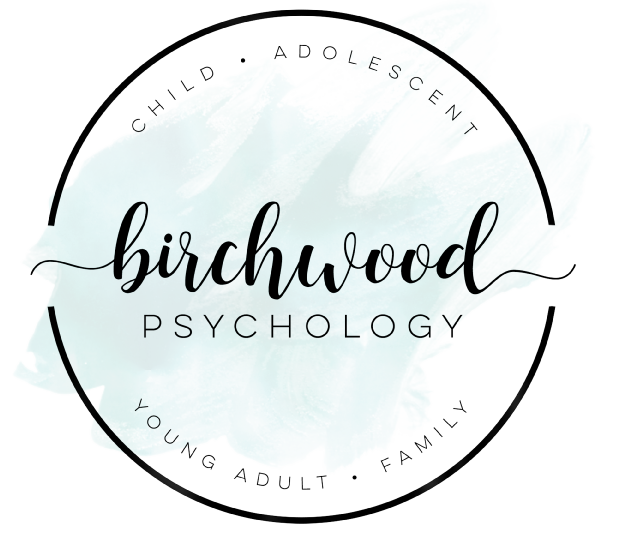Creating an optimal family environment for eating disorder recovery
Some parents worry that they caused their child to develop an eating disorder. Current evidence does NOT support this view at all. Rather, eating disorders are complex mental illnesses with a multitude of contributing bio-psycho-social factors. For one, eating disorders are hereditary conditions that are strongly influenced by genes, which means they can be passed down through generations like eye color, depression, or cystic fibrosis. Eating disorders are also influenced by individual personality traits and psychological factors (e.g., anxiousness, perfectionism, rigidity) and pervasive sociocultural messages that idealize thinness. Parents are not to blame for their child’s eating disorder. However, the data do show that parents are able to help their child recover by providing specific kinds of support.
At my child & adolescent therapy practice in Traverse City, I work with parents to create an optimal family environment to best help their child recover from their eating disorder. Here are a number of things parents can do to help support their child’s recovery:
Avoid following a restrictive diet
As you can imagine, it is very difficult for a teen with an eating disorder to address their rigid dietary rules if someone in the family is currently attempting to lose weight with a low-calorie or restrictive diet. For example, picture a mother counting calories at the dinner table or a father pushing away the breadbasket because he’s on a no-carb Keto diet. Unless a diet is medically advised and your physician says it cannot be postponed, family members are asked to pause their weight loss plan until their child has recovered and instead replace it with a weight maintenance plan that involves following more flexible balanced nutritional guidelines.
Avoid keeping triggering “snack” food in the house
A pantry full of high-calorie foods such as chips, cookies, and other tasty, prepackaged snacks may be a trigger for binge-eating episodes among teens that struggle with a restrict-and-then-binge cycle. Your teen is working hard to counter or ride out their urge to binge and it will be easier for them without these kinds of easy-to-consume foods in the home. Labeling certain foods as “forbidden” tends to make us want them more – so continue to send the message that ALL foods have a place in a balanced diet – but it’s best to keep triggering foods at a minimum while your child is in treatment.
Avoid comments about the patient’s eating during meals
 During meals, parents should not make any comments – positive or negative – about their teen’s eating. Any kind of comment about eating during meals can trigger unhelpful emotional reactions that may impede their eating. For example, even a well-meaning comment from a parent such as “I’m so pleased you ate all your chicken” could lead to negative self-talk like “I’m such a pig for eating all of that, I better not eat any more.” (Note: This advice does not apply if you are engaging in parent-assisted meals and snacks as part of Family-Based Treatment. While in all types of treatment critical comments about eating are to be avoided, parents participating in FBT will receive specific instructions on how to deliver effective and supportive verbal and physical prompts to assist their child in eating).
During meals, parents should not make any comments – positive or negative – about their teen’s eating. Any kind of comment about eating during meals can trigger unhelpful emotional reactions that may impede their eating. For example, even a well-meaning comment from a parent such as “I’m so pleased you ate all your chicken” could lead to negative self-talk like “I’m such a pig for eating all of that, I better not eat any more.” (Note: This advice does not apply if you are engaging in parent-assisted meals and snacks as part of Family-Based Treatment. While in all types of treatment critical comments about eating are to be avoided, parents participating in FBT will receive specific instructions on how to deliver effective and supportive verbal and physical prompts to assist their child in eating).
Avoid conversations that emphasize thinness
Parents should avoid conversations about themselves or others being thin or losing weight. Self-critical comments like “I better lay off the cookies” or complements such as “Aunt Susan looks amazing now that she lost that extra weight” can encourage your child’s belief that thinness is the “ideal.” It is best to avoid talking about weight and shape altogether around your child. In addition, it is best to remove the words “good” and “bad” / “healthy” and “unhealthy” from your vocabulary when talking about food around your child with an eating disorder. Negative comments about weight or food can affect a child’s internalized body image and their relationship with food. There are no foods that are inherently bad or fattening in moderation and all food groups have a place in a balanced diet.

Create an environment that does not encourage concerns about shape and weight
Having lots of mirrors in the home may trigger excessive shape checking, which can lead to negative thoughts about one’s appearance. Similarly, an easily accessible bathroom scale can trigger unhelpful overly frequent weight checking. Books, magazines, or television programs about dieting, cooking, or fashion may also be unhelpful. If possible, remove extra mirrors, scales, and any media focused on weight, shape, or eating.

Create a “new” home environment
Once your child has started treatment, make some small changes to your home to signal a “fresh start.” Consider changing the seating arrangements of the family around the table, buying new dishes, cups, and cutlery, cloth napkins, or place mats, or putting out a new center piece. If you don’t already, it is strongly recommended that you start eating meals together as a family. And if this is a new habit for you, begin with just one meal a week and build up from there.
Create opportunities to experience positive emotions together
Like many family illnesses, an eating disorder doesn’t just affect the patient. It affects the family as a whole. And sometimes a parent’s legitimate worry and concern can be experienced as criticism or anger by their child. As such, taking the time to experience positive family emotions together is as important for recovery as addressing the eating disorder. Parents should purposefully plan to spend time with their teen in a pleasant and relaxed way, to share mutually enjoyable activities, relive happy memories, and generally just have fun together each day. While spending time together, parents should resist the urge to give advice, instruction, or even express concern. Just 15 minutes a day of “special time” can go a long way toward creating or rebuilding a positive relationship. Siblings can also help support their ill sister or brother by distracting them after meals. If this is not your family norm, a few parent coaching or family therapy sessions with a therapist can help you create a more optimal home environment to best support your child during their recovery.
Be there and instill hope
Most importantly, communicate your confidence that your child can change and recover from an eating disorder. Be there to listen, believe in them, and let them know that you support them.
If you are in Michigan and interested in learning more about starting adolescent eating disorder treatment, family therapy, or parent coaching, please reach out. I’d love to talk with you about how I can help.


